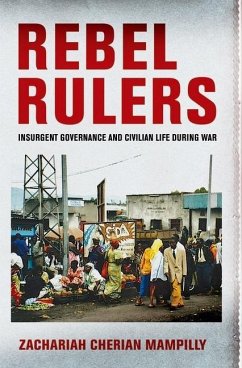Rebel Rulers is informed by Zachariah Cherian Mampilly's extensive fieldwork in rebel-controlled areas. Focusing on three insurgent organizations-the Liberation Tigers of Tamil Eelam (LTTE) in Sri Lanka, the Rally for Congolese Democracy (RCD) in Congo, and the Sudan People's Liberation Movement/Army (SPLM/A) in Sudan-Mampilly's comparative analysis shows that rebel leaders design governance systems in response to pressures from three main sources. They must take into consideration the needs of local civilians, who can challenge rebel rule in various ways. They must deal with internal factions that threaten their control. And they must respond to the transnational actors that operate in most contemporary conflict zones. The development of insurgent governments can benefit civilians even as they enable rebels to assert control over their newly attained and sometimes chaotic territories.
MampillyZachariah Cherian:
Zachariah Cherian Mampilly is the Director of Africana Studies and Associate Professor of Political Science and International Studies at Vassar College. He is coauthor of Africa Uprising: Popular Protest and Political Change.
Dieser Download kann aus rechtlichen Gründen nur mit Rechnungsadresse in A, B, BG, CY, CZ, D, DK, EW, E, FIN, F, GR, HR, H, IRL, I, LT, L, LR, M, NL, PL, P, R, S, SLO, SK ausgeliefert werden.


